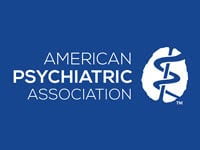Just a few days before the 57th anniversary of the civil rights March on Washington, where Martin...
Impact of ‘Minority Tax,’ Need for Diversity in Academic Psychiatry Discussed at APA Town Hall

Structural racism has led to a lack of diversity in the psychiatric academic workforce and needs to be addressed, said panelists last night in the fourth online town hall meeting hosted by APA’s Presidential Task Force to Address Structural Racism Throughout Psychiatry. The panelists also described the impact of the “minority tax,” defined as extra, financially uncompensated duties and responsibilities that minorities are asked to perform to increase diversity at their institutions, such as serving on a search committee that would otherwise be all White.
“[The minority tax] is a major source of inequity in academic medicine. … It is one of the major factors in delaying promotion for us in academia,” said Sheritta Strong, M.D., director of inclusion and an assistant professor of psychiatry at the University of Nebraska Medical Center. She added that when there is a lack of mentorship by minority psychiatrists, residents and psychiatrists who are members of ethnic and racial minorities may fall prey to accepting roles that may be “tokenized” and incorporate activities that are not recognized for promotion.
Nhi-Ha Trinh, M.D., M.P.H., director of the Psychiatry Center for Diversity in the Department of Psychiatry at Massachusetts General Hospital, emphasized the necessity of tailoring mentorship.
“[It] is very important [to] focus on the individual trainee and junior faculty member regarding their academic pursuits, the time they can devote to those pursuits, and also what their individual career path might be, which may be different from what the mentor or sponsor might envision,” Trinh said.
Crystal Clark, M.D., M.Sc., an associate professor of psychiatry and behavioral sciences and obstetrics and gynecology at the Northwestern University Feinberg School of Medicine, said that the pipeline for bringing more trainees from minority and underrepresented populations into psychiatry as a career does not begin in medical school. “We have to get down to primary education, really. To achieve that [comes down to] finding a way to be more present in the community, finding a way to reach out to young students in high school and even elementary school … so that [mental illness] is not seen as a horror that can happen to you but is seen as just one of the many health conditions that someone might suffer from.”
Michael Mensah, M.D., M.P.H., APA’s resident-fellow member trustee and co-chief resident in the University of California, Los Angeles Department of Psychiatry, emphasized the need for residents and faculty in minority and underrepresented populations to ensure their own well-being as a counterbalance to the minority tax.
“You’re a valuable member of your community. You need to preserve yourself and make sure you are feeling healthy enough to take care of your patients and yourself,” Mensah said. “Don’t overwhelm yourself with this responsibility. If you burn out as a result of anti-racist work, that is a loss to your community that really can’t be replaced.”
The panelists were joined by Gabriel Felix, M.D., an APA/APAF Public Psychiatry Fellow and adult psychiatry resident at Cambridge Health Alliance/Harvard Medical School; Anthony Kulukulualani, M.D., an APA/APAF Jeanne Spurlock Congressional Fellow and a psychiatry resident at the Brody School of Medicine at East Carolina University; and Nicole Pacheco, M.D., an APA/APAF SAMHSA Minority Fellow, chair of the Minority Fellowship Program, and a psychiatry resident at Columbia-New York State Psychiatric Institute. A question-and-answer session after the panel discussion was moderated by task force member and APA Trustee-at-Large Michele Reid, M.D., a clinical assistant professor in the Department of Psychiatry and Behavioral Neurosciences at Wayne State University in Detroit and the chief medical officer of CNS Healthcare. An article in the March issue of Psychiatric News will provide more details on this productive discussion.
The next town hall will take place on May 1 from 4 p.m. to 5:30 p.m. ET as part of APA’s virtual 2021 Annual Meeting.
Don't miss out! To learn about newly posted articles in Psychiatric News, please sign up here.






